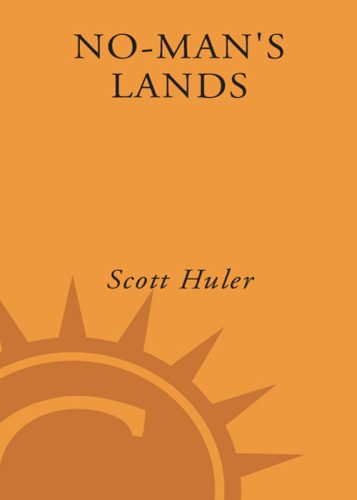
No-Man's Lands
One Man's Odyssey Through The Odyssey
کتاب های مرتبط
- اطلاعات
- نقد و بررسی
- دیدگاه کاربران
نقد و بررسی

March 3, 2008
As this literary travelogue opens, NPR contributor and author Huler (Defining the Wind) sounds like he's going to renege on his 2001 pledge never to read James Joyce's Ulysses. He joins a Ulysses reading group, but finds himself more fascinated by the story behind it: Homer's The Odyssey, which he'd also never read. A plan is born: to retrace Odysseus' twenty-year travels. Huler's first challenge is that nobody really knows where any of the locations actually are-finding them, he says, is like hunting for the Emerald City from The Wizard of Oz. Although Huler initially tries too hard to relate his slapdash wanderings to the text (a ride on a Homer-themed cruise has him saying, "I found myself among these magical seafarers, exactly like Odysseus"), he eventually gives in to the randomness of his travels, and the book is all the better for it. While fighting his way onto crowded ferries or showing up in tiny hamlets with no hotel reservations, he has some realizations about the man he's following and about journeying as its own reward. Huler's book is not without flaws, but in essence, as he himself concludes about The Odyssey's continuing appeal, "the story has good bones."

March 10, 2008
As this literary travelogue opens, NPR contributor and author Huler (Defining the Wind) sounds like he's going to renege on his 2001 pledge never to read James Joyce's Ulysses. He joins a Ulysses reading group, but finds himself more fascinated by the story behind it: Homer's The Odyssey, which he'd also never read. A plan is born: to retrace Odysseus' twenty-year travels. Huler's first challenge is that nobody really knows where any of the locations actually are-finding them, he says, is like hunting for the Emerald City from The Wizard of Oz. Although Huler initially tries too hard to relate his slapdash wanderings to the text (a ride on a Homer-themed cruise has him saying, "I found myself among these magical seafarers, exactly like Odysseus"), he eventually gives in to the randomness of his travels, and the book is all the better for it. While fighting his way onto crowded ferries or showing up in tiny hamlets with no hotel reservations, he has some realizations about the man he's following and about journeying as its own reward. Huler's book is not without flaws, but in essence, as he himself concludes about The Odyssey's continuing appeal, "the story has good bones."
Copyright 2008 Library Journal, LLC Used with permission.

Starred review from March 15, 2008
In 2001 the author, an NPR contributor, learned that you really shouldnt say certain things on the airlike, for instance, that you will never read James Joyces Ulysses. Because devotees of the book might challenge you to give it a fair try, and you might wind up rereading the epic poem that inspired Joyce, Homers Odyssey. And then you might find yourself in the Mediterranean, retracing Odysseus voyage from Troy to Ithaca. Well, thats what happened to Huler, anyway, and its a good thing, too: not only did he develop a new appreciation of a classic piece of literature but he also found a new side of his own character: not only a husband and a father but also a lone traveler on an epic journey. It sounds a little artsy-fartsy, but Huler tells the story in a breezy, entertaining style, deftly mixing historical and literary backstory with what happens on the road, making us laugh whileintroducing us to places weve never seen and people weve never met (but with whom wesomehow feel connected). Recommend this one highly to fans of adventure memoirists like Bill Bryson and Tim Cahill.(Reprinted with permission of Booklist, copyright 2008, American Library Association.)

























دیدگاه کاربران